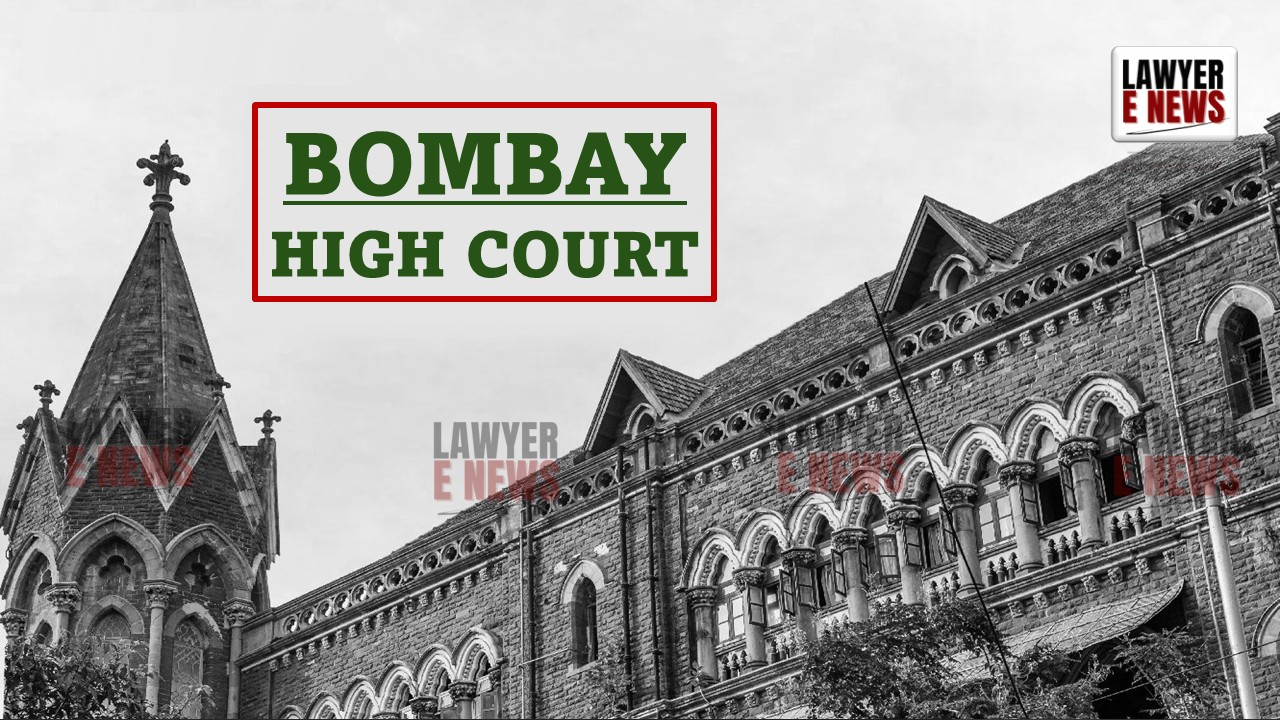-
by Admin
15 February 2026 5:35 AM



Export Credit Status Cannot Be Denied for Delayed Document Submission If Exports Materialized Within Permissible Period - Bombay High Court addressing the issue of procedural compliance under the RBI Master Circular on Export Credit. The court ruled that export advances cannot be disqualified as "export credit" solely because of minor procedural delays in submitting export documents, provided the exports were completed within the prescribed tenure. The court granted partial relief to the petitioners, Jindal Cocoa LLP, while holding that for delayed exports that failed to materialize within the permissible 450-day period, reversal of subvention was valid.
Jindal Cocoa LLP, an exporter of cocoa products, availed of Indian Rupee-denominated pre-shipment export credit from HDFC Bank under the RBI Master Circular on Rupee/Foreign Currency Export Credit & Customer Service to Exporters (July 1, 2015). The loans were further eligible for subsidized interest under the Interest Equalization Scheme (Subvention Scheme) issued by the Ministry of Commerce and Industry, Government of India.
However, the controversy arose regarding compliance with Paragraph 1.1.2(ii) of the Master Circular, which states:
"If pre-shipment advances are not adjusted by submission of export documents within [450] days from the date of advance, the advances will cease to qualify for prescribed interest rates for export credit to the exporter ab initio."
Out of 107 export transactions financed, disputes centered on two subsets of transactions:
First Lot: Exports materialized within 450 days, but submission of export documents was delayed.
Second Lot: Exports failed to materialize within 450 days, and export credit was foreclosed.
HDFC Bank reversed the subvention benefits (amounting to over ₹8 crores) on the grounds that the delays disqualified the advances as "export credit." This decision was upheld by the Banking Ombudsman, prompting the petitioners to challenge it in the High Court.
The key issue was whether a delay in submitting export documents invalidates the advances as "export credit," even if exports were completed on time. The court noted:
"Submission of export documents is a procedural requirement aimed at proving exports. A minor delay in submission does not disqualify the advances as 'export credit' when the export obligation is fulfilled within the prescribed period."
The court rejected HDFC Bank's rigid interpretation of Paragraph 1.1.2(ii), emphasizing that the Master Circular is a regulatory instrument aimed at promoting exports and must be interpreted in a purposive manner.
For the Second Lot of transactions, where exports did not materialize within 450 days, the court upheld the reversal of subvention. The court reasoned that the maximum permissible period of export credit (450 days) is sacrosanct and essential to maintaining the integrity of the Master Circular's policy objectives.
"If exports do not materialize within the stipulated period, the credit extended cannot be treated as 'export credit' under the Master Circular. Such treatment would undermine the regulatory framework and enable misuse of concessional credit."
The court held that advances financing exports completed within 450 days, albeit with delayed submission of export documents, remain valid as "export credit." The reversal of subvention benefits (₹4.62 crores) for these transactions was set aside.
For the Second Lot, where exports failed to materialize within 450 days, the court upheld the reversal of subvention (₹3.52 crores). The petitioners' argument that subvention should be available for the first 450 days irrespective of subsequent non-compliance was rejected.
The court emphasized that the Master Circular aims to provide short-term working capital at competitive rates to exporters. Delayed submission of documents, if it does not affect substantive compliance (i.e., timely exports), should not lead to disqualification of the credit as export credit.
The court distinguished between conditions requiring strict compliance (exports within 450 days) and those permitting substantial compliance (submission of documents within a reasonable period). It ruled that document submission is a directory requirement and not a mandatory one.
The court criticized HDFC Bank's interpretation as unreasonable and arbitrary, stating:
"The advances cannot lose the status of 'export credit' ab initio simply because of minor procedural delays in proving exports that have actually materialized."
For the Second Lot, the court stressed that allowing subvention despite non-fulfillment of export obligations would turn the Master Circular into a device for availing long-term cheap credit without commitment to timely exports.
Directions
First Lot: HDFC Bank was directed to reverse the subvention reversal and reimburse the petitioner ₹4.62 crores within four weeks.
Second Lot: The reversal of ₹3.52 crores was upheld.
Clarity in Account Statements: HDFC Bank was ordered to issue detailed statements of accounts to the petitioners to resolve outstanding dues.
Regulatory Compliance: The Reserve Bank of India (RBI) and Ministry of Commerce were instructed to reimburse HDFC Bank for subvention amounts related to the First Lot.
This judgment provides crucial clarity on the interpretation of RBI's Master Circular on Export Credit and balances procedural compliance with the broader objectives of export promotion. It ensures that exporters are not penalized for minor delays in procedural requirements while emphasizing the importance of fulfilling substantive obligations.
The decision reaffirms the principle that regulatory instruments promoting economic objectives must be interpreted purposively and in a manner that avoids arbitrary outcomes. It also ensures that public funds used for subvention are safeguarded against potential misuse.
Date of Decision: January 3, 2025
